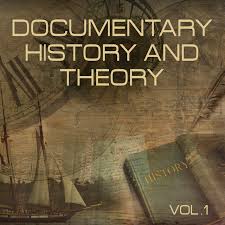
This course explores the principles and practices of creating compelling advertising messages and visually effective layouts. Students will learn how to craft persuasive copy that aligns with branding strategies and appeals to target audiences. Emphasis is placed on the integration of text and design to communicate messages clearly and creatively across various media platforms.
Objectives:
-
To understand the principles and elements of effective advertising copy and layout design.
-
To develop creative thinking and writing skills for crafting persuasive advertising messages.
-
To explore the strategic role of copy and layout in achieving communication goals.
-
To familiarize students with various advertising formats and media platforms.
-
To gain hands-on experience using tools for layout and design (e.g., Adobe Creative Suite).
-
To critically analyze and evaluate professional ad campaigns for inspiration and improvement.
-
To foster an understanding of target audience behavior and message customization.
Learning Outcomes:
By the end of the course/module, learners will be able to:
-
Identify and explain key principles of advertising copywriting and visual layout.
-
Write clear, concise, and compelling advertising copy tailored to specific audiences and media.
-
Design effective ad layouts that integrate text, imagery, and branding elements harmoniously.
-
Apply creative strategies to produce ads that communicate messages persuasively and memorably.
-
Use industry-standard tools (e.g., Photoshop, Illustrator, InDesign) to execute professional-quality layouts.
-
Analyze and critique real-world advertising campaigns based on strategic and creative criteria.
-
Develop a cohesive advertising campaign with a strong concept, compelling copy, and well-executed visuals.
Course Code: BMAC 2104
Academic Year 2024-2025
Lecturer: Landuard MUGYEMA
- Teacher: content creator

A "Documentary History and Theory" course typically delves into the evolution of documentary filmmaking, examining its technological, stylistic, and thematic developments while engaging with theoretical debates surrounding truth claims and representations of reality. Students analyze how documentaries differ from other film genres, explore the ethical considerations of storytelling, and often participate in practical exercises like producing their own short documentaries, thereby gaining critical understanding of the documentary form as both an art and a cultural artifact.
Objectives:
- Understanding the Evolution of Documentary to trace the historical development of documentary forms, from early photography and film to contemporary digital media.
- Developing Critical Thinking Skills to cultivate the ability to analyze and evaluate documentary films and other forms of documentary media critically.
- Exploring Theoretical Frameworks to introduce and examine key theories of documentary, including realism, reflexivity, and performativity.
- Practical Application to provide students with a basic understanding of documentary production.
- Historical Knowledge students will be able to identify and discuss key figures, movements, and milestones in documentary history.
- Theoretical Understanding students will be able to articulate and apply relevant theoretical concepts to the analysis of documentary media.
- Critical Analysis students will be able to analyze documentary films and other media in terms of their form, content, and purpose.
- Practical Skills students will be able to demonstrate basic skills in documentary filmmaking or media production (e.g., shooting, editing, sound recording).
Course Code: BMAC2202
Academic Year 2024-2025
Lecturer: Landuard MUGYEMA
- Teacher: content creator

This course explores the intricate relationship between Rwandan culture and the ethical responsibilities of the media in contemporary society. It provides a comprehensive understanding of traditional and modern Rwandan cultural values, norms, and social systems, and examines how these influence media practices and public communication. Students will engage with key ethical theories and principles in journalism and media production, and analyze how cultural sensitivity, national unity, and responsible storytelling shape media content in Rwanda. The course also critically examines the role of media in post-genocide Rwanda, focusing on reconciliation, peacebuilding, and development communication.
Objectives:
- To provide a foundational understanding of Rwandan cultural values, traditions, and societal norms.
- To explore the historical and social influences on Rwandan media and communication practices.
- To examine the ethical responsibilities of media professionals within the Rwandan context.
- To promote critical thinking about the relationship between media, culture, and national development.
- To encourage the application of ethical principles in media production and journalism in Rwanda.
Learning Outcomes:
- Describe key elements and values of Rwandan culture and how they influence communication.
- Analyze how Rwanda’s historical experiences shape media ethics and public discourse.
- Identify and apply core ethical principles relevant to media practice in Rwanda.
- Evaluate media content using ethical and cultural lenses specific to the Rwandan context.
- Demonstrate awareness of legal frameworks and regulatory bodies governing media in Rwanda.
- Develop culturally sensitive and ethically sound media messages or journalistic content.
Course Code: BMAC 3102
Academic Year 2024-2025
Lecturer: Landuard MUGYEMA
- Teacher: content creator

This course explores the complex relationship between mass media and society, examining how media influences and reflects cultural, political, and social dynamics. It provides an overview of various forms of media—including print, broadcast, digital, and social media—and analyzes their roles in shaping public opinion, identity, behavior, and power structures. Students will study media institutions, ownership, representation, and regulation, while also considering issues such as media bias, propaganda, censorship, and the digital divide. Through critical analysis and discussion, the course encourages students to become informed and responsible media consumers and producers in an increasingly interconnected world.
Objectives:
- To examine the historical development and evolution of mass media.
- To understand the role of media in shaping cultural, political, and social values.
- To explore how media influences public perception, identity, and behavior.
- To analyze media institutions, ownership, and the economics of media production.
- To encourage critical thinking about media content, ethics, representation, and power dynamics.
- To prepare students to engage responsibly with media as consumers and creators.
Learning Outcomes:
- Explain the functions and impacts of various forms of mass media on society.
- Identify key theories and concepts related to media studies and mass communication.
- Critically evaluate media messages for bias, representation, and underlying agendas.
- Analyze how media reflects and shapes issues related to gender, race, class, politics, and culture.
- Describe the effects of media ownership and regulation on content and audience perception.
- Discuss the societal implications of emerging media technologies and digital platforms.
Key Topics:
- Culture and the Mass Media
- Social Change and the Mass Media
- Globalization and the Media
- Technology and the Media
- Social Institutions and the Mass Media
- Mass Media and the Economy
- Mass Media and Governance
- Mass Media and Development
- Mass Media and Environment
- Sustainable Journalism in Society
Lecturer: Albert Fils NZAYURUGO
- Teacher: content creator

This course introduces students to the fundamental principles and practices of journalistic writing and editing. It focuses on developing clear, accurate, and engaging news content for print, broadcast, and digital media. Students will learn how to identify newsworthy stories, structure reports using the inverted pyramid style, and apply journalistic ethics and standards. Emphasis is also placed on grammar, headline writing, fact-checking, and copyediting techniques to ensure clarity and accuracy. Through practical assignments and newsroom simulations, students will gain hands-on experience in crafting professional news stories and refining them for publication or broadcast.
Objectives:- To understand the core principles of news writing and journalistic ethics.
- To develop the ability to identify, gather, and verify newsworthy information.
- To learn the structure and style of effective news writing, including leads and the inverted pyramid.
- To practice editing techniques that enhance clarity, accuracy, and readability.
- To prepare students for work in a modern newsroom or media production environment.
Learning Outcomes:
By the end of this course, students will be able to:
- Identify and apply the elements that make a story newsworthy.
- Write clear, concise, and fact-based news stories for different formats (print, digital, broadcast).
- Edit and proofread news content for grammar, punctuation, and factual accuracy.
- Apply journalistic standards and ethical guidelines in news writing and editing.
- Craft engaging headlines, captions, and leads appropriate to the story’s tone and platform.
- Use basic layout and publishing tools to prepare stories for publication.
Academic Year 2024-2025
Lecturer: Albert Fils NZAYURUGO
- Teacher: content creator

- Teacher: Jean Paul MANIRABONA

